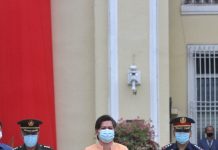The total amount of waste being ferried to the modern sanitary landfill has been reduced after segregation initiatives were put in place in Davao City.
From a recorded average of 480 tons of garbage collected everyday in the month of December 2010, the City has been collecting 430 tons of garbage since then, says Engr. Joseph Felizarta, head of the city environment and natural resources office (Cenro).
Felizarta says major businesses in Davao City, particularly the big malls, are practicing waste segregation and this has contributed to the reduction of collected waste per day, which Felizarta says used to hit around 500 tons daily in past years.
Also 60 of the 180 barangays in the city have solid waste management councils which implement segregation activities, particularly in operating the materials recovery facility or MRF. The barangays have a large role in solid waste management in the city as they are the primary overseers in garbage segregation.
Felizarta says that 62% of the total waste in the city are biodegradable and can be used as compost or fertilizers. The rest, like special and residual waste, are the ones transported to the landfill facility in New Valencia.
The Cenro is also charging fees (collection, and tipping) on big companies, the bigger the amount of garbage the bigger the fee. Segregation will allow lesser amount of garbage to be collected or tipped which means savings for the companies.
Meanwhile, three proposals for the conversion of waste materials into energy/electricity in the sanitary landfill have been junked by the city government.
Felizarta says that the conversion of waste to energy requires a large number of garbage estimated at 1,000 tons a day to be converted to power; this in turn will encourage more waste to be transported to the sanitary landfill.
“This practice will discourage people from segregating their trash,” he adds. [PIA 11]






